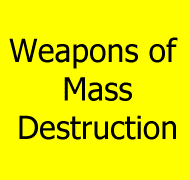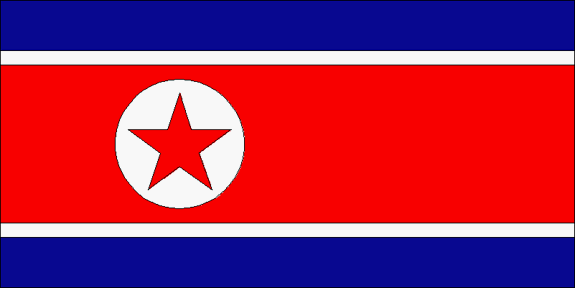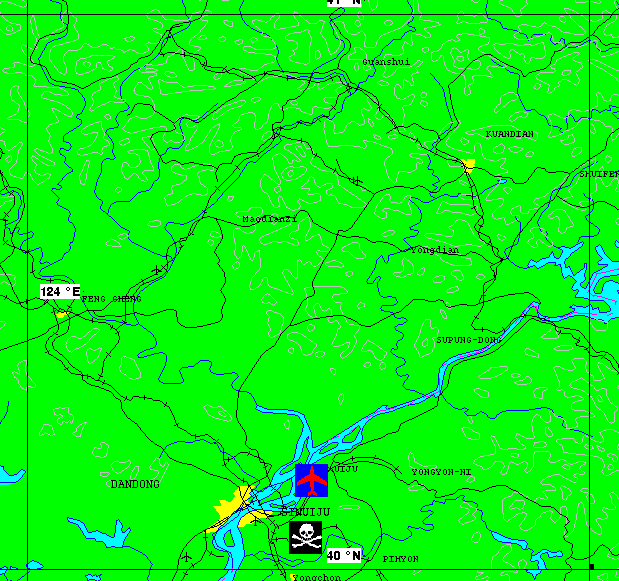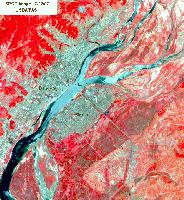



Sinuiju
N40�06' E124�23'
Sinuiju Chemical Fiber Complex
North Korea has at least eight industrial facilities that can produce chemical agents; however, the production rate and types of munitions are uncertain. Presumably one or more of the agents [sarin, tabun, phosgene, adamsite, prussic acid and a family of mustard gases] comprising the basis of North Korean chemical weapons are produced at the Sinuiju Chemical Fiber Complex, probably including blood agents.
Military factories are classified as armament
factories, which produce weapons such as firearms and
munitions, general military factories, which produce
general military material such as military uniforms and
footwear, and those general machinery factories that can
be converted for weapon and parts production during
wartime. General military factories are located in the
industrial district of Sinuiju while most wartime
conversion factories are located in the industrial district
of Pyongyang.
The Third Seven-Year Plan emphasized synthetic fiber production based on indigenous technology using coal and limestone, and on the production of chemical fiber based on petrochemistry. The government called for accelerating the expansion projects at both the Sinuiju and Ch'ngjin chemical fiber complexes. The textile industry, the most important light industrial sector, utilizes primarily locally produced synthetics and petrochemically based fibers, as well as cotton and silk. P'yongyang, the site of the P'yongyang Integrated Textile Mill, is the country's textile capital, but Sinuiju and Sariwn have been gaining in importance.



Sources and Resources
http://www.fas.org/nuke/guide/dprk/facility/sinuiju.htm
Maintained by Webmaster
Updated Tuesday, November 23, 1999 2:48:19 PM









